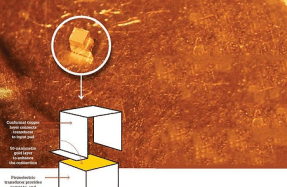Can Science Cure Death?

NICK SARAEV IS 25 YEARS OLD; FAR TOO YOUNG, IT WOULD SEEM, to be thinking about death. And yet, since he turned 21, he has taken steps to prevent the infirmities of old age. Every day, he takes 2 000 mg of fish oil and 4 000 IU of vitamin D to help prevent heart disease and other ailments. He steams or pressure-cooks most of his meals because, he says, charring meats creates chemicals that may increase the risk of cancer. And in the winter, he keeps the humidity of his home at 35 per cent, because dry air chaps his skin and makes him cough, both of which he considers manifestations of chronic inflammation, which may be bad for longevity.
Based on the life expectancies of young men in North America, Saraev, a freelance software engineer based near Vancouver, believes he has about 55 years before he really has to think about ageing. Given the exponential advances in microprocessors and smartphones in his lifetime, he insists the biotech industry will figure out a solution by then. For this reason, Saraev, like any number of young, optimistic, tech-associated people, believes that if he takes the correct preventative steps now, he might well live forever.
Saraev’s plan is to keep his body in good enough shape to hit ‘Longevity Escape Velocity’, a term coined by English gerontologist Aubrey de Grey to denote slowing down your ageing enough to reach each new medical advance as it arrives. If you delay your death by 10 years, for example, that’s 10 more years scientists have to come up with a drug, computer program, or robot assist that can make you live even longer. Keep up this game of reverse leapfrog, and eventually death can’t catch you. The term is reminiscent of ‘planetary escape velocity’, the speed an object needs to move in order to break free of gravity.
The science required to break free of death, unfortunately, is still
You’re reading a preview, subscribe to read more.
Start your free 30 days



